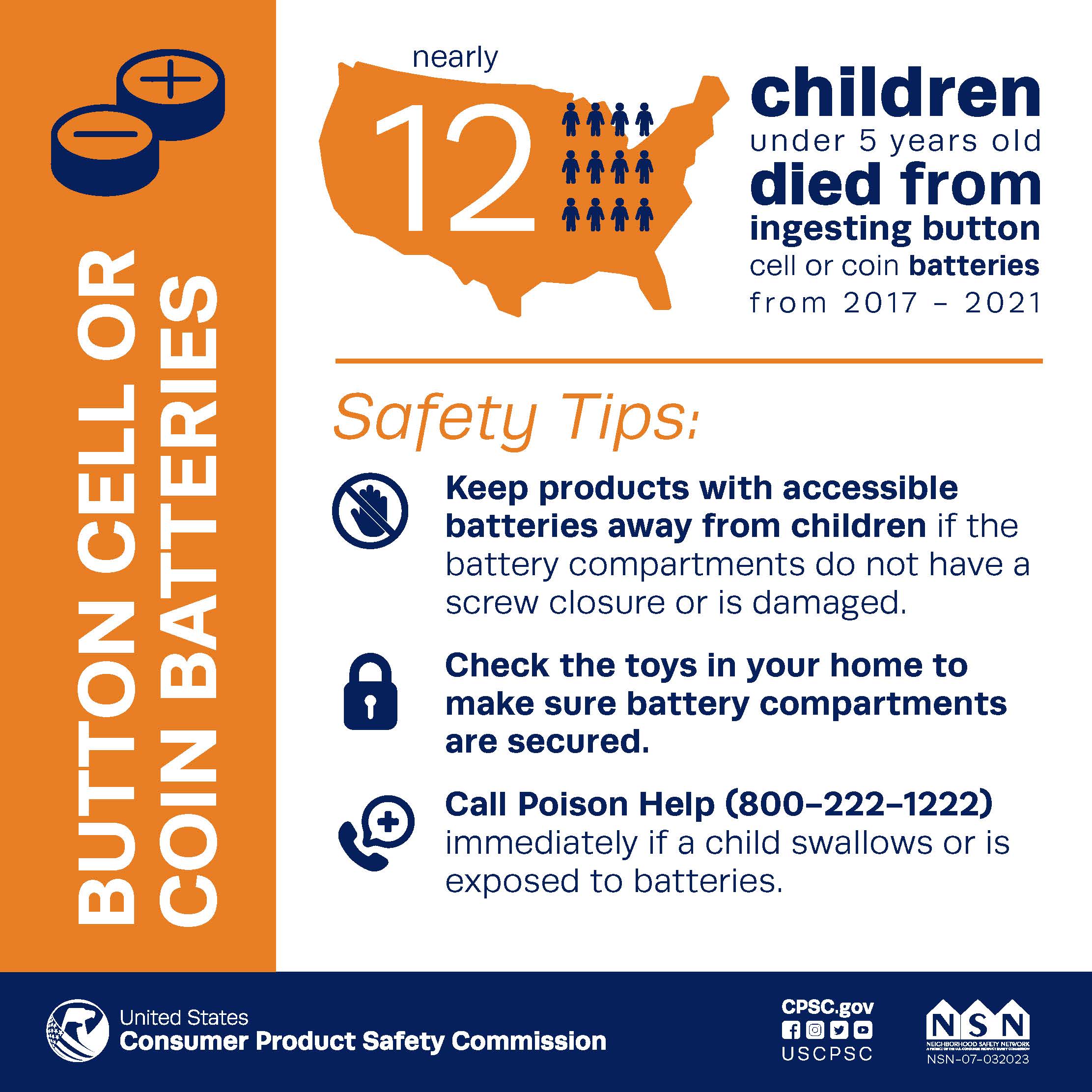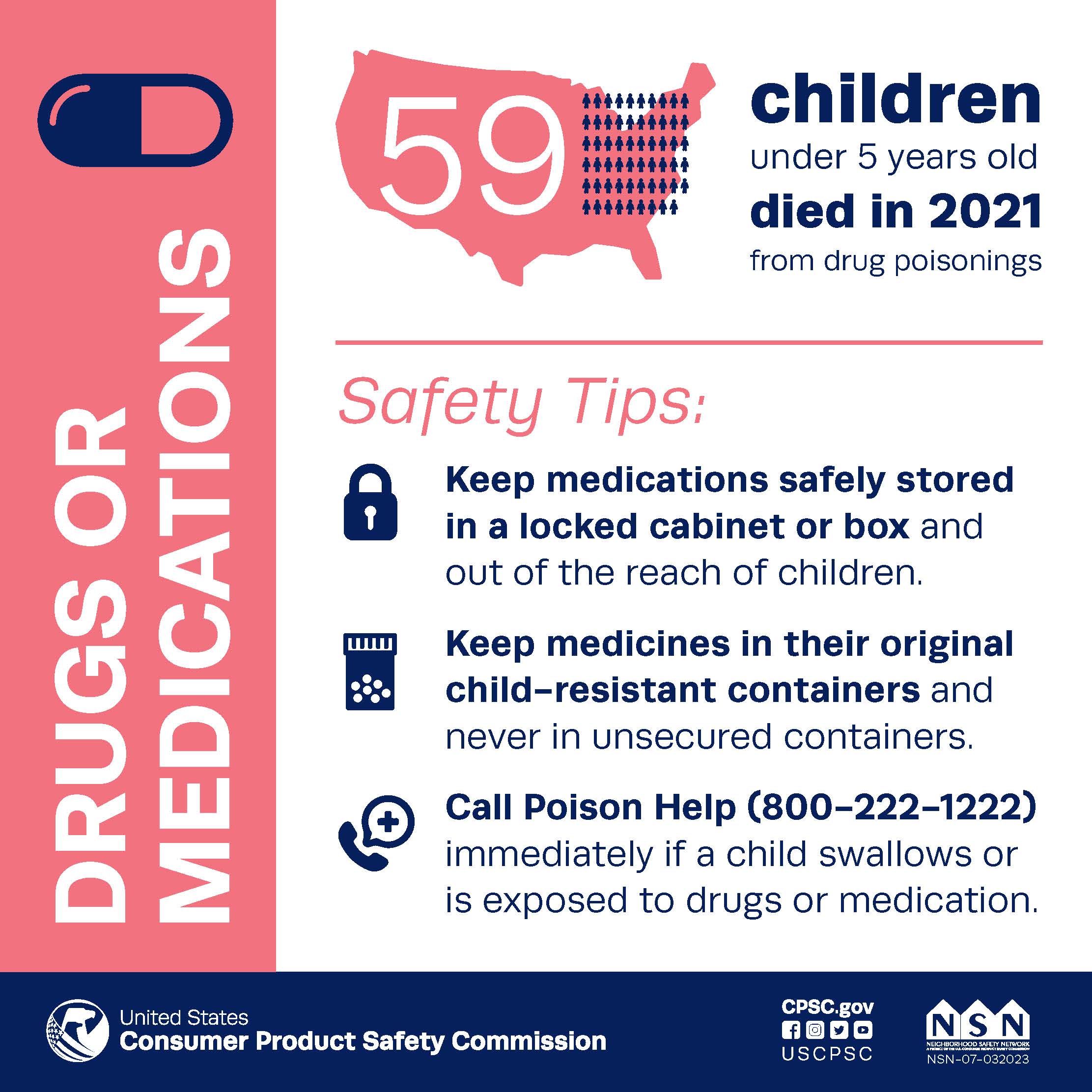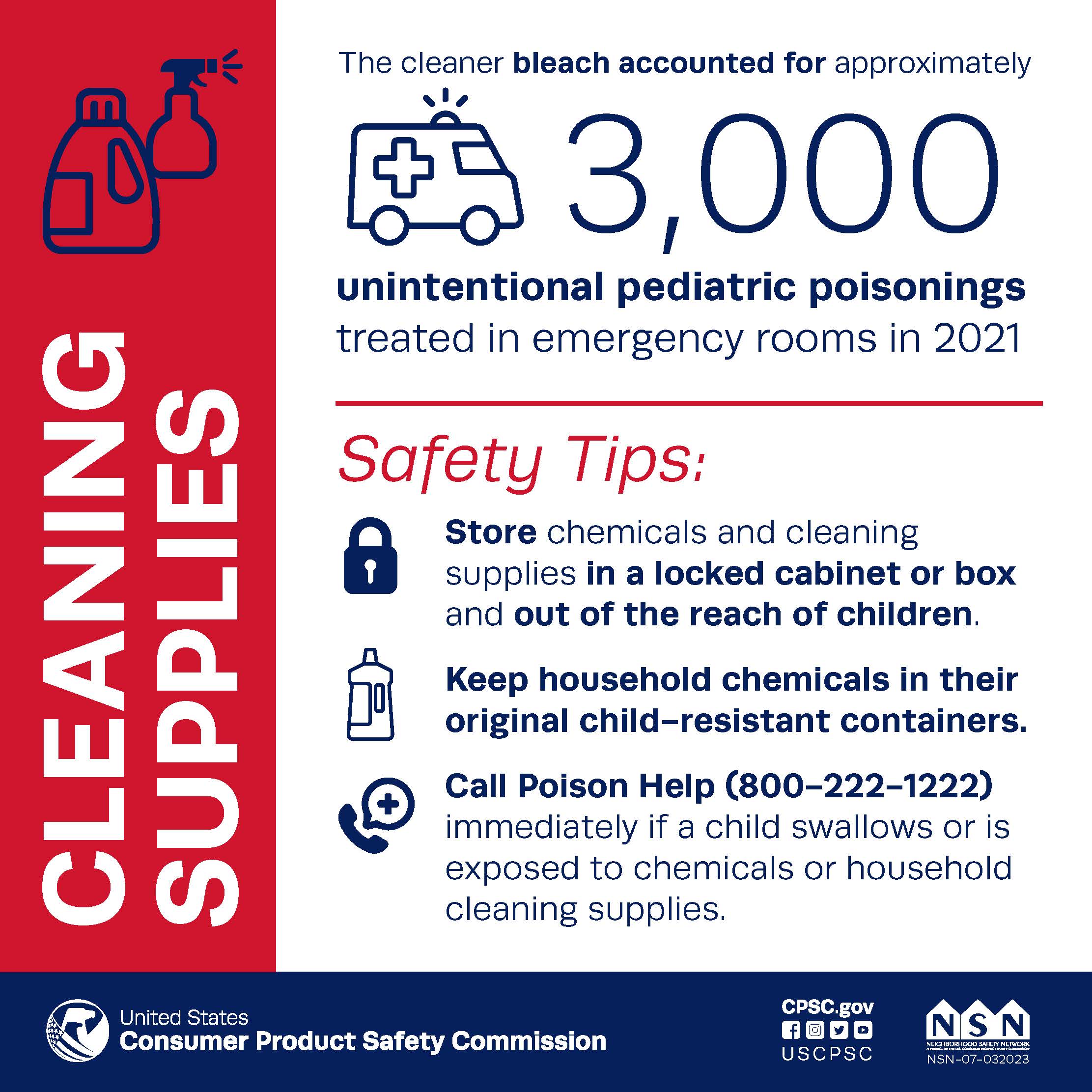WASHINGTON, D.C. – Unintentional pediatric poisoning deaths spiked 37 percent in 2021, with 59 children under five years old losing their lives after gaining access to prescribed or illicit drugs. The U.S. Consumer Product Safety Commission (CPSC) encourages consumers to safeguard their families, especially those more vulnerable, from poisonings by taking control of potentially harmful household products, medications and drugs.
This National Poison Prevention Week (March 20-24, 2023) marks 61 years since the first national observation. Child poisoning deaths have fallen by 73 percent since 1972 due to tough federal laws including the Poison Prevention Packaging Act (PPPA) of 1970 and the Child Nicotine Poisoning Prevention Act of 2015 and the cooperation of the poison prevention community. This community includes the American Association of Poison Control Centers, standard development organizations, consumer advocates, medical professionals, industry and government.
“Sadly, this report shows the work that still needs to be done to protect children,” said Alexander Hoehn-Saric, Chair of the U.S. Consumer Product Safety Commission. “Nearly eight out of 10 poisonings occurred in the home. Please take the time to store cleaning supplies, laundry packets, button batteries, and drugs out of children’s reach or in locked cabinets. If you see it lying around, a child can grab and swallow it.”
CPSC’s latest report notes that African American children suffer a higher rate of unintentional pediatric poisoning injuries, 21.4 percent, compared to being 15.8 percent of the U.S. population. The report also found that blood pressure medications, acetaminophen, antidepressants, laundry packets and bleach are the five products most involved in unintentional pediatric poisonings.
CPSC encourages family members and caregivers to identify hazards in the home that could be a poisoning danger and keep them out of a child’s sight and reach.
Safety tips for parents and caregivers:
Drugs or Medications
- Keep medications safely stored in a locked cabinet or box and out of the reach of children.
- Keep medicines in their original child-resistant containers and never in unsecured containers.
- Properly discard unfinished or unused medicines.
Laundry Packets
- Store laundry packets in their original containers and out of a child’s sight and reach.
- Do not let children handle laundry detergent packets.
Household Cleaning Supplies
- Keep chemicals and cleaning supplies safely stored in a locked cabinet or box and out of the reach of children.
- Keep household chemicals in their original child-resistant containers.
Button Cell or Coin Batteries
- Keep products with accessible batteries away from children if the battery compartments do not have a screw closure or if the compartment is damaged.
- Check the toys in your home to make sure battery compartments are secured.
- Do not allow children to play with or be in contact with button cell or coin batteries.
Individual Commissioners may have statements related to this topic. Please visit www.cpsc.gov/commissioners to search for statements related to this or other topics.
About the U.S. CPSC
The U.S. Consumer Product Safety Commission (CPSC) is charged with protecting the public from unreasonable risk of injury associated with the use of thousands of types of consumer products. Deaths, injuries, and property damage from consumer product-related incidents cost the nation more than $1 trillion annually. Since the CPSC was established more than 50 years ago, it has worked to ensure the safety of consumer products, which has contributed to a decline in injuries associated with these products.
Federal law prohibits any person from selling products subject to a Commission ordered recall or a voluntary recall undertaken in consultation with the CPSC.
For lifesaving information:
- Visit CPSC.gov.
- Sign up to receive our email alerts.
- Follow us on Facebook, Instagram, X, BlueSky, Threads, LinkedIn and Truth Social.
- Report a dangerous product or a product-related injury on www.SaferProducts.gov.
- Call CPSC’s Hotline at 800-638-2772 (TTY 800-638-8270).
- Contact a media specialist.
Please use the below phone number for all media requests.
Phone: (301) 504-7908
Spanish: (301) 504-7800





